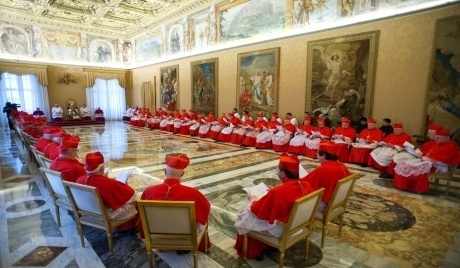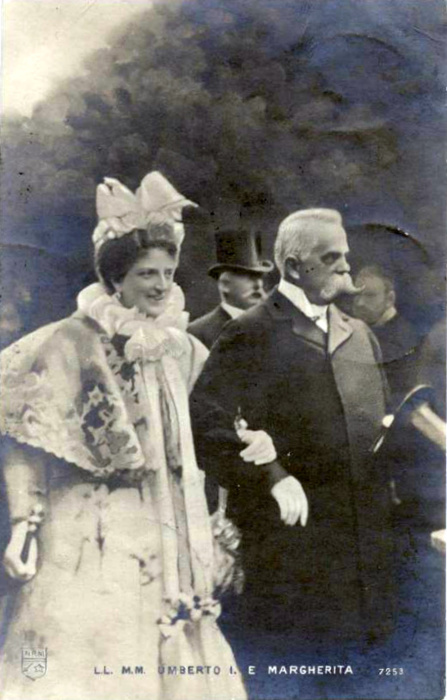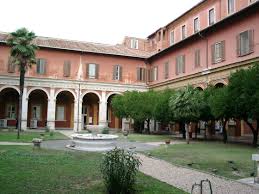THE VATICAN.
Among the articles recently presented to the Holy Father were some curious and beautiful baskets made of the inner bark of trees, the work of the Indian tribe of Abenikis in Maine, U.S. Two pairs of elaborately ornamented mocassins were also presented to the Pope from the same tribe by the hands of Dr. James Healy, of Portland, Maine. His Holiness inquired minutely into the condition of this interesting tribe of Abenikis, who some centuries ago were converted to Christianity by Catholic missionaries, one of whom, Father Sebastian Rastes, was martyred by the new Englanders. An apostate was never known among this tribe. Leo XIII. gave to Bishop Healy a splendid medal for the chief of the tribe, and also wore a pair of the mocassins the evening of the day when they were presented, when Bishop Ryan, of Buffalo, took farewell audience. A beautiful carpet, the pattern of which represents the dome of St. Peter’s, was presented to the Pope by a society of French ladies. A deputation of the clergy and chapter of Fano had audience of his Holiness. On Monday, November 25, there was the customary reception of visitors in the Consistorial Hall. Mgr. Paolo Scapaticci and Commendatore Egidio Dati, the President and Vice-President of the Roman Diocesan Council for the Pious Work of the Propagation of the Faith, were received in private audience.

On Wednesday, the 27th November, Leo XIII. gave audience in the Throne Room to the Professors of the Gregorian Pontifical University, established in the German and Hungarian College under the direction of Jesuit Fathers. The professors belonged to the Chairs of Theology, Canon Law, and Philosophy, and were headed by Father Cardella, Provincial, Father Molza, Rector, and Father Kleutgen, Prefect of Studies. Father Cardella read an address in Latin, expressing the constant affection and firm devotion of the Company of Jesus to the Apostolic See. He mentioned that from the University on whose behalf he spoke had issued nine Pontiffs, of whom the reigning Pontiff was the last. He rejoiced in being enabled to make that statement, and returned thanks to God. He then declared the unalterable obedience of the University to the desires of Leo XIII., and especially with reference to the wish of the Pope that the theological and philosophical course of teaching should be rendered more efficacious for the contests against error. His Eminence Cardinal Parocchi, Archbishop of Bologna, was received in private audience by the Pope on the 27th. His Eminence laid an offering of Peter’s Pence at the feet of his Holiness, from the parish priests and some pious Institutes of Bologna.
THE ROYAL ENTRY

King Humbert and Queen Margharita made their entrance into Rome on Sunday, the 24th, amid great official rejoicings. The Royal Family were well guarded from the danger of assassination. Their carriage, in passing from their Palace to the railway terminus in Naples, was surrounded with troops. The terminus was strongly guarded. The entire line of railway from Naples to Rome was protected by sentinels stationed at intervals to give the alarm in case of danger. In Rome the Questor, Signor Bolis, made some hundreds of arrests, and, it is said, discovered some terrible plots against the life of the King. Several regiments of infantry were called to Rome to keep order. The houses along the route between the railway terminus and the Quirinal were carefully examined by police agents, and all suspicious persons removed. A number of officers, not on regimental duty, were selected to walk on either side of the King’s carriage during the drive from the railway station to the Quirinal. A squadron of Cuirassiers rode in front of the Royal cortege. King Humbert looks wretchedly ill, and had a severe fit of coughing just before entering his carriage at the station. In the carriage with his Majesty sat the Queen, the young Prince of Naples, Prince Amadeo, and Signor Cairoli. The Via Nazionale and the Via Quirinale were lined with soldiers. Their Majesties arrived at the Quirinal in safety and without any disturbance of the public peace. On the evening of the 24th, and also of the 25th, the Corso was illuminated and also the public buildings. On the latter morning soldiers from every regiment in Rome were supplied with torches, and marched, with the torches burning, from the Piazza del Popolo to the Quirinal.
STATE OF PUBLIC SECURITY.
The condition of Italy is at present truly alarming. The Internationalists seem determined to force on a revolution. They are said to have obtained the two and a half millions of francs which were so mysteriously stolen between Ancona and Genoa, and to have bought some thousands of rifles. The accounts of explosions of bombs, and of seditious demonstrations at Pesaro, Pisa, Genoa, San Sepulcro, Bologna, &c., &c. prove the fact that almost all Italy, and notably the Romagna, is ripe for revolt. In Rome the windows, or gratings, in the basement story of the Home Office were walled up, to prevent the Internationalists from blowing up the Palace by dynamite, or burning it with petroleum.
ENGLISH SERMONS IN ROME
By the wish of the Cardinal-Vicar, the Rev.H. Morgan, of the Congregation of the Most Holy Redeemer, will preach every Sunday at three o’clock in the afternoon, in the church of S. Andrea delle Fratte, commencing on Sunday, the 1st of December, being the first Sunday in Advent.
THE SCOTS’ COLLEGE

The Feast of St. Andrew, the Patron of Scot-land, was duly commemorated in the Scots’ College in Rome. The church was beautifully arranged with festive hangings, and the external front was repaired and freshly decorated. Dr. Campbell, the Rector, sung the Mass, the music being plain, with voices only. Among those present at the commemoration were the Bishops of Beverley, Liverpool and Armidale, Lady Margaret Howard, Lord Ralph Kerr, Miss Clifton, Mrs. Vansittart, Mrs. Savile Foljambe, Mrs. Kinloch Grant, Monsignor Stonor ; Monsignor Agnozzi, Secretary of Propaganda; Monsignor Kirby; Monsignor Cretoni, Sub-Secretary of State ; Very Rev. Dr. O’Callaghan, Rector of the English College ; Monsignor Rinaldini ; Very Rev. Dr. Hostlot, Rector of the American College ; Father Mullooly, Prior of St. Clement’s ; Professor Dr. Bernard Smith; Rev. Dr. English ; Mr. Winchester ; Mr. Bliss ; Mr. Plowden ; Mr. Hugh Gladstone ; and Cavaliere Fontana.
THE PROPAGANDA
Monsignor Achille Rinaldini, who was Sostituto in the Secretariat of the Propaganda and for a long time was Minutante for British affairs at Propaganda, has retired from those offices and has taken possession of his canonry at Sta. Maria Maggiore. He is succeeded in the office of Minutante by the Rev. Signor Zonghi.
The above text was found on p.17, 7th December 1878 in “The Tablet: The International Catholic News Weekly.” Reproduced with kind permission of the Publisher. The Tablet can be found at http://www.thetablet.co.uk .